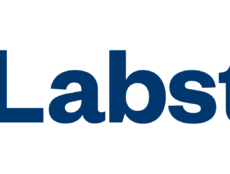
Editor’s Picks
I Am Learning to Code: Week 1, Why I Chose Codecademy
By Henry Kronk
January 23, 2018
A week has passed since I began Codecademy’s intensive web development course on “Building Websites from Scratch.” In my previous post, which was also my first, I discussed why I was skeptical of online coding courses like the one I’m taking and why I am learning to code in spite of that skepticism. This week I will cover why, based on that skepticism, I chose Codecademy from the many companies offering to teach learners to code.
But first, I’ll go over briefly what I have learned so far. The short answer is a fair amount. The first unit consisted entirely of an introduction to hypertext markup language, otherwise known as HTML. We built very basic websites, like a simple restaurant’s menu and a travel blog post about a trip to Paris. One thing I was happy about is the course didn’t just show you how to do the basics of html but also provided guides and tips on how to do it best, how to write code that is easy to edit and fix, and some practices that will help in a few different departments going forward.
I chose Codecademy for reasons generally related to this last point: not every instructor seeks to do so. Many do promise this learning experience, but come with other cons. Before I get further, some background is needed. Prominent online courses for learning to code generally fall into one of the three following categories:
Learning to Code with Online Coding Bootcamps
The first of these is the online coding bootcamp. Learners have likely heard of brick and mortar coding bootcamps that charge the sticker price of a 2018 Toyota Corolla or more to attend. These intensive programs typically take up 30-40 hours of your week to attend and might last longer than one year. Graduates, however, walk away with the abilities of a full-stack software developer who could start taking cracks at Silicon Valley practical interviews.
 Coding bootcamps are beginning to offer online-only programs as well. These typically cost the negotiated price of a used 2015 Toyota Corolla. It’s true, Quartz recently described online coding bootcamps, or the lack of significant competition among them, as an oxymoron. Coding bootcamps should be able to fit into an online format seamlessly, they argue. So why isn’t the space flooded? Truth be told, competition is increasing. For now, the space is dominated by players such as The Flatiron School, Bloc, and Thinkful.
Coding bootcamps are beginning to offer online-only programs as well. These typically cost the negotiated price of a used 2015 Toyota Corolla. It’s true, Quartz recently described online coding bootcamps, or the lack of significant competition among them, as an oxymoron. Coding bootcamps should be able to fit into an online format seamlessly, they argue. So why isn’t the space flooded? Truth be told, competition is increasing. For now, the space is dominated by players such as The Flatiron School, Bloc, and Thinkful.
Despite regulatory action by the state of New York against the former, I considered these to be mostly reputable institutions that probably do a great job of teaching their learners. I could not, however, quit my full time job to pursue an education in coding. I wasn’t even sure that learning to code would be enjoyable or that I want to pursue a coding-related profession. I also didn’t exactly have the expandable income needed to enroll in one of these programs.
For-Profit, MOOC-Adjacent
Another large group of players in online coding courses developed out of the 2012 MOOC boom. Companies like Udacity and Coursera, both of which were started by former Stanford Professors who first offered their course in MOOC form back in 2012, fall into this category, as does Udemy, CodeWars, and others. These guys offer something much closer to what I’m after. Most are very reasonable in price and come with either a per-course cost or a subscription model.
 But there’s a concern with these providers that isn’t as pressing with the established and well-reviewed coding bootcamps: I don’t how far I can trust them. I spoke about this in my previous post at much greater length. But, of the three categories of online coding instructors, I would argue that this group is least trustworthy. When a company is defrauding students who pay over $10,000 for their education, people hear about it, because their former students want retribution. When that cost is down to between $100-$500, the crime is significantly less egregious. I don’t think that any company mentioned above is practicing predatory behavior, but they also are not as pure as the wind driven snow, like many industry leaders and executives would have you believe.
But there’s a concern with these providers that isn’t as pressing with the established and well-reviewed coding bootcamps: I don’t how far I can trust them. I spoke about this in my previous post at much greater length. But, of the three categories of online coding instructors, I would argue that this group is least trustworthy. When a company is defrauding students who pay over $10,000 for their education, people hear about it, because their former students want retribution. When that cost is down to between $100-$500, the crime is significantly less egregious. I don’t think that any company mentioned above is practicing predatory behavior, but they also are not as pure as the wind driven snow, like many industry leaders and executives would have you believe.
Many of these educators also offer job-focused courses, as in, take this course, and we will prepare you for a programming job at Amazon. I did not want to take a course like this. I am learning to code because I want to learn skills for their own sake, and to accomplish a given end, not get a high paying job per se. I’m also concerned about the model for other reasons.
Free MOOCs
The last category of online coding educators are free massive open online courses. This field is made up of players such as edX, FutureLearn, and openSAP. Typically in partnership with a leading university, these providers offer courses free of charge. Examples include “HTML5 Coding Essentials and Best Practices” from edX and the World Wide Web Consortium, “Functional Programming in Haskell” from FutureLearn and the University of Glasgow, and “Introduction to Computer Science” from edX and Harvard.
While you certainly get more than you pay for with a free MOOC, you don’t get very much. You will typically be one of thousands of learners. While that might provide for some great online forums, it will be difficult if not impossible to get the ear of the instructor. Onn the other hand, for-profit MOOC-adjacent instructors often don’t always offer much that helps beyond a healthy forum populated by hundreds of engaged, active learners. But the good ones do.
Why I chose Codecademy’s Intensive Courses
Codecademy’s paid courses arguably fall somewhere in between all of these categories. No, they’re not free, but they do offer one of the most robust collections of free online resources when it comes to online coding.
 They are also not coding-bootcamp-intense, but the curriculum is no easy A either. Educators estimate the course to take up 10 hours of time per week. I’ve personally managed to go faster than that, but as I’ll discuss next week, I’ve had some background in HTML and CSS before beginning.
They are also not coding-bootcamp-intense, but the curriculum is no easy A either. Educators estimate the course to take up 10 hours of time per week. I’ve personally managed to go faster than that, but as I’ll discuss next week, I’ve had some background in HTML and CSS before beginning.
It was also fairly reasonably priced. The 10-week course costs $200. This brings me to a point that is somewhat difficult to explain: I wanted to pay money for the course. Yes, in paying for a course, you can expect better services, a greater commitment from the instructor, and, generally (hopefully), an experience worth paying for. But you are also far more likely to complete the course. One of the early problems that MOOC providers ran into was, when free, no one was completing the course. When Coursera began charging their freemium subscription model, however, completion rates soared. I am, at the end of the day, a human, and I recognize that paying for a course will help me to take it seriously and complete it on time.
But the single quality that brought me first and foremost to Codecademy is their reputation. One of the greatest challenges with which online educators currently struggle is creating trust with their learners. Players across the board are beginning to be targeted by lawyers and regulators. If I were to place a bet, I would wager that more cases will begin popping up before there are fewer.
Since I became aware of Codecademy (I believe when Stephen Colbert interviewed the founder on the Colbert Report), I have never heard of them to do anything questionable or dodgy. One big factor in this is that they don’t make any outlandish promises. The course I am taking simply pledges to teach learners how to build professional websites from scratch. They don’t guarantee specific jobs or salaries with the skills they will impart. They have never paid a settlement to the federal government. They have never used insane sounding lofty rhetoric to market their courses. That could not be said for a very many of the companies mentioned above.
Those are my reasons. It has yet to be seen whether my suspicions are correct and whether I made the right choice. Next week, I’ll discuss the often-marketed notion of learning to code with zero experience, the knowledge I brought in to this course, and how it has served me.









No Comments